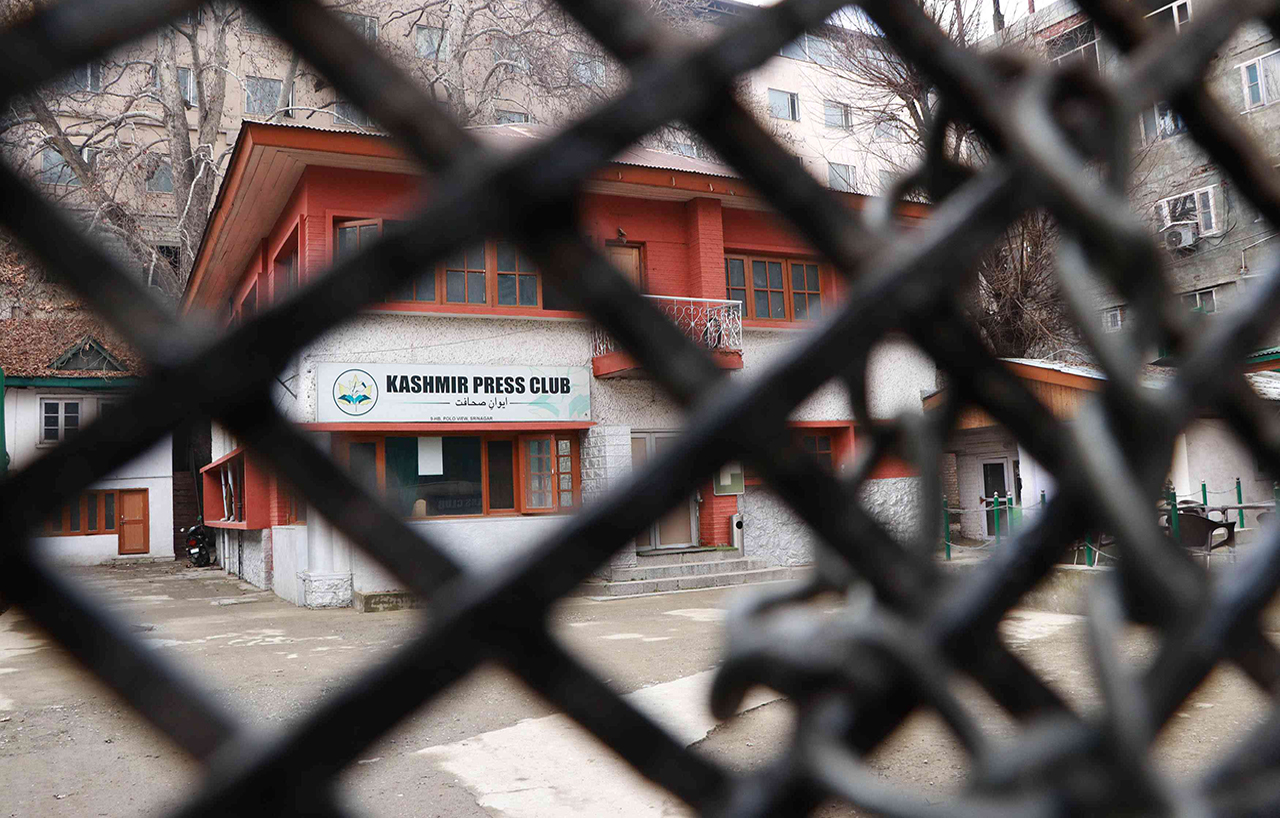The Editors Guild of India on Tuesday expressed anguish over the shutting down of the Kashmir Press Club (KPC), after the Jammu & Kashmir administration took over the club premises, saying that it had ceased to exist as a registered body.
Earlier, on 15 January, a group of journalists accompanied by armed policemen and CRPF personnel had reached the press club in Srinagar, took over its control and declared themselves to be the “interim body”. A day earlier, the re-registration of the club was put in “abeyance” by the administration, reportedly over a report from the J&K Police Criminal Investigation Department.
The administration today announced : “It has been decided that the allotment of the premises at Polo View in view of the now deregistered Kashmir Press Club be canceled and control of land and buildings situated at Polo View Srinagar which belongs to the Estates Department be reverted back to the said department”.
The Press Club was among the institutions, besides the bar association, which was not in control of the Indian State since the abrogation of article 370 in Kashmir. This move is to place pro-government and embedded journalists at the helm of the club’s affairs, so as to control the Kashmir narrative.
Many journalist and press clubs across the country have described the hostile takeover of the club and the subsequent move of the J&K government to shut it down as an undemocratic bid to stifle the voice of the local Kashmiri media. In its statement, the Editors Guild today noted the shutting down of the club by the government “sets a dangerous precedent for media freedom”. The Guild reiterated its earlier demand that the status quo before the January 14 order of the Registrar of Societies be restored with respect to the functioning of the club, and that the state work towards building and protecting the space for a free press.
Read the full statement of the Editors Guild of India here:
The Editors Guild of India is deeply anguished by the shutting down of the Kashmir Press Club by the Government of Jammu and Kashmir, on January 17, 2022. The shutting down of the club is the latest act in a sequence of disturbing events, wherein the “re-registration” of the club was first arbitrarily put “in abeyance” by the Registrar of Societies on January 14, followed by the shocking breach of institutional norms when a group of people, with the active support of state police and CRPF, took over the office and management of the club on January 15.
With the shutting down of the club and government reverting the land back to the Estates Department, an important journalistic institution in a region that has seen the worst kind of state heavy-handedness against any independent media, has been effectively dismantled. Kashmir Press Club was established in 2018, and already had more than 300 members, making it the largest journalists’ association in the region.
Space for media freedom and active civil society has been steadily eroding in the region. Journalists frequently face intimidation from terror groups as well as the state. They are also charged under heavy penal laws, and are routinely detained by security forces for reporting or for their editorials. In June 2018, Shujaat Bukhari, the editor of Rising Kashmir, was killed by unknown people. In April 2020 an FIR was filed against the journalist Peerzada Ashiq, in connection with a report he had filed for The Hindu newspaper, while freelance photographer Masrat Zahra was charged with Unlawful Activities Prevention Act (UAPA). In October 2020, the Srinagar office of Kashmir Times was suddenly sealed. In March 2021, Fahad Shah, editor-in-chief of The Kashmir Walla, a Srinagar-based publication, was detained for the third time for his writings. In April 2021, Kashmir Police had issued an advisory forbidding journalists from reporting live encounters with militants on the specious plea that it is “likely to incite violence” or that it can promote “anti-national sentiment”. Most recently, journalist Sajad Gul was arrested for posting a video of a protesting family on social media.
In a state ridden with such excesses against the media, Kashmir Press Club was an important institution for fighting for protection and rights of journalists. It also remained open through the lockdown, giving journalists access to important facilities like the internet for filing their work, as well as workshops for training of young journalists. The shutting down of the Club therefore sets a dangerous precedent for media freedom.
The Guild reiterates its earlier demand that the status quo before the January 14 order of the Registrar of Societies be restored with respect to the functioning of the club, and that the state works towards building and protecting the space for a free press.

